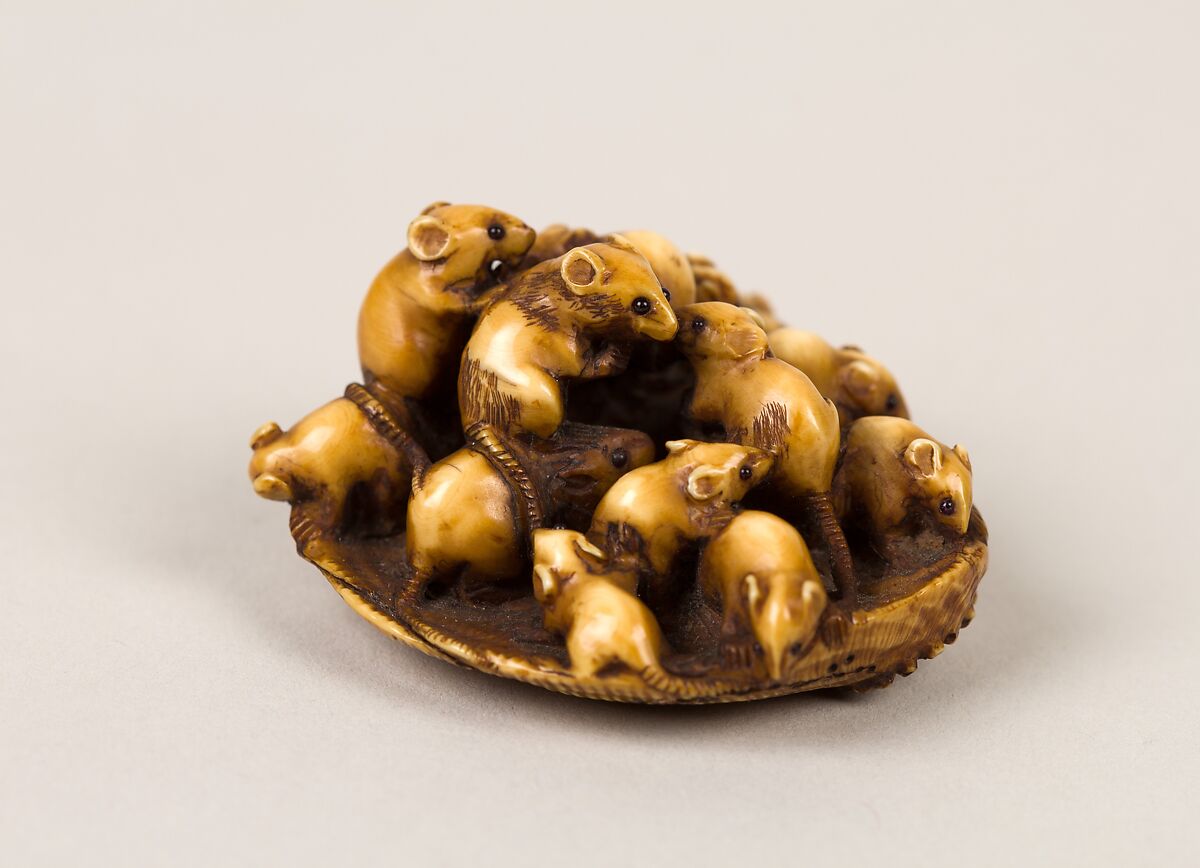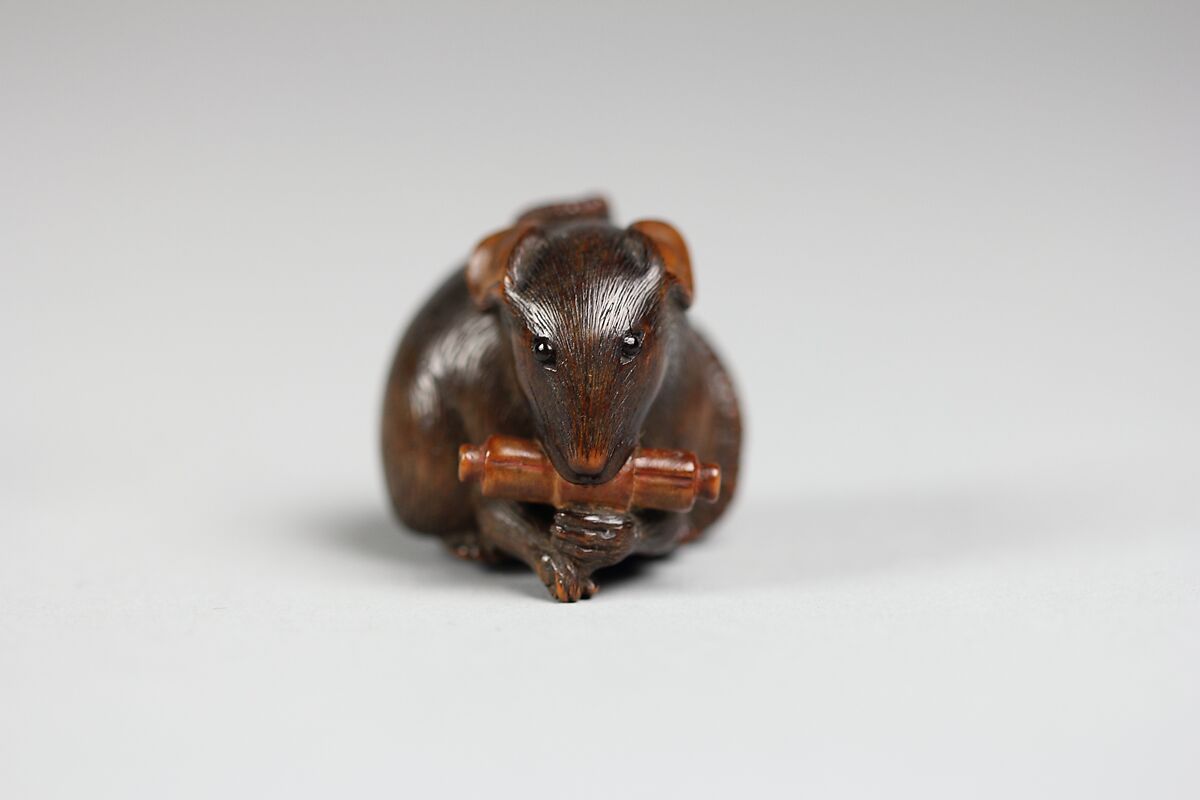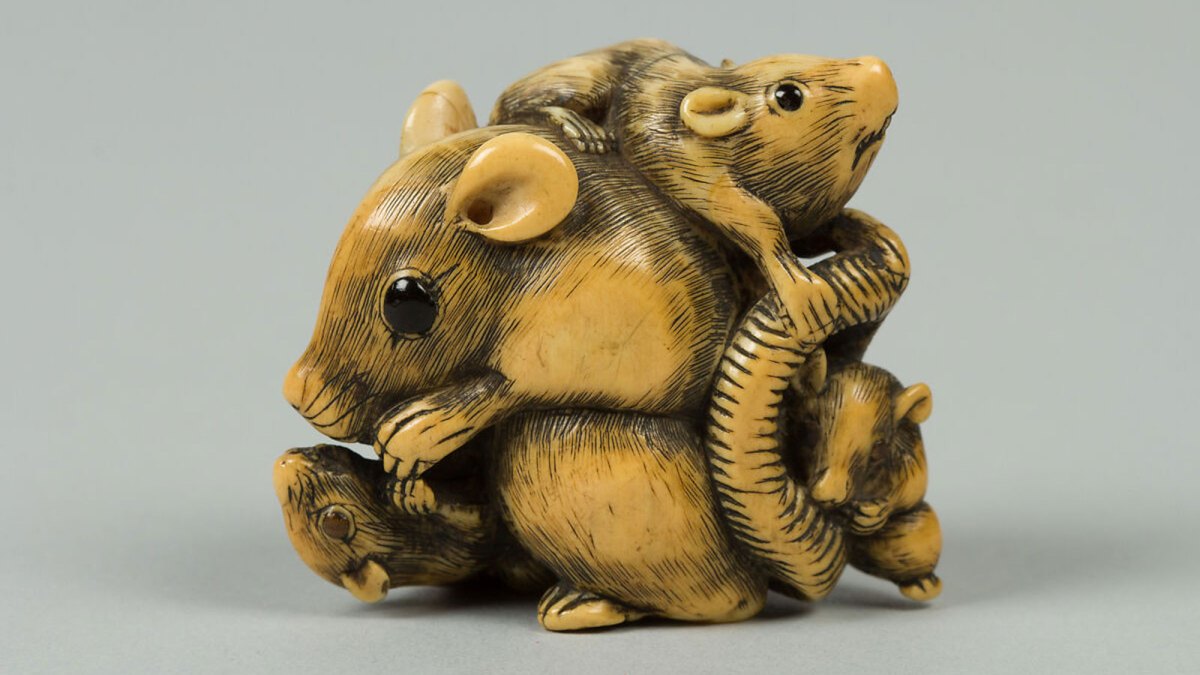To read Franz Kafka’s last short story “Josephine, the Songstress or The Mouse Folk” is to recognize the reflection better the dirtier the glass. The subject of the story is an artist and the creatures in whose midst she makes her art. Her name is Josephine. She is a singer. Or is she? Josephine’s folk or tribe doesn’t sing, they whistle. What she calls singing sounds like whistling to them. Josephine’s singing or whistling is “at the most, a bit sweeter or somehow softer” than normal whistling. So how to explain the effect it has? The way her fellows go quiet when she sings? Their rush to anticipate her moods, to allay her disappointments?
Maybe it’s the solemn way she whistles. Maybe it’s less her song than the silence into which it sounds, those brief moments when the tribe of the mice is actually as still as mice. When she sings, her “whistling has become freed from the chains of our daily lives, the restrictions that life forces upon us and, so, this frees us too—if only for a little while.” (The English I quote is from Phillip Lundberg’s translation, which sounds rather different to the original.)
Calm is as foreign to Josephine’s tribe as it is to mine. Their lives are short and unpredictable. They prize pragmatism, because their hopes are fleeting, their fears hardly bearable. This emotional landscape is the artist’s territory. “It’s terribly bleak and difficult, often enough millions of our folk tremble beneath the weight of the burden that is placed upon just one. Then Josephine intuits that her time has come.” Her time hasn’t come. Can a time be hers?
Still, being in the presence of her whistling is pleasant. Even for those who don’t understand the fuss, who figure the sound she makes is hardly special. She sings, and “already we’re being enveloped by the receptive feelings of the multitude, the warmth of the crowd with one body pressed up upon the next, all so timid and listening in rapt attention and with bated breath,” the skeptics say.

When the tribe goes through political and economic crises, Josephine is protected. She believes she is protecting. Although she disappears at the first hint of danger. And has the safest perch of all the tribe when she sings. And some think her song brought the enemy in the first place. But the tribe still needs her in its way:
Despite the fact that…our stillness is not simply due to our devoted appreciation of hearing her sing, that there are quite a few of us who don’t even cast our eyes her way, rather there are so many whose faces are pressed into the fur of their neighbor, and so it seems as if Josephine’s performance was all for nothing, that her great effort would be futile, all the same one cannot deny it, something does force its way through, something of her whistling inevitably does strike us.
Josephine is innocent like a child, though in her tribe childhoods barely exist: they are short and burdened with labor. She is mercurial. She works when she must, but her view of work is haughty. “Josephine has fought for the privilege of being excused from doing any other work other than her singing,” her fellows note with bemusement, “that she should be released from all of the cares regarding the earning of one’s daily bread and, likewise, from everything else that is somehow related to our struggle for survival, and that all of this should be placed, most probably, upon the shoulders of the entire community, upon our folk as a whole.”
The latest from VAN, delivered straight to your inbox
Surprisingly, this claim is not dismissed immediately. “There are idealists, people who are quick to grasp at the spirit—I do believe that even yet there are a few such amongst us—who simply due to the bold extravagance and oddity of such an assertion, that this spirited boldness all alone would be enough to convince them of the inner justification of such a stance.” But freedom from work is just one of Josephine’s demands. And whether she gets her way or not, she is quick to take back what she gives. She shortens her melodies. She leaves out her coloraturas. At least the tribe thinks so: “It’s quite likely that she’s followed through on this though I can’t say that I’ve noticed any particular differences in the way that she sings versus how it used to be.” One day, of course, she must stop singing. So she disappears. No one misses her songs. They forget her, as everyone is forgotten.
In “Josephine, the Songstress,” which Kafka finished a few months before his death a century ago, the idea of the artist’s fixed place among her people is shown as a mirage. Throughout the story, the narrator tries to grasp what this place could be, but the closer he gets, the more it moves just beyond his reach. The correctness—the tangibility—of Kafka’s insight is jolting, like cold water in a dry throat.
The way we talk about art right now is desiccated. During the political and economic crises of which my tribe knows no end, those of us who, like Josephine’s audience, hope for the “yearning for the sublime happiness that music may, perhaps, deliver,” advocate for it in declaratory terms. Art makes us moral, we say. It makes us smart. It creates wealth. Builds bridges between, preserves the uniqueness of cultures. It strengthens our capacity for empathy, emotion and reflection. Artists are likewise dependent on such rhetoric: whether from a sincere belief in the utility of what they do; or from a cynical yet utterly reasonable need to secure their livelihoods in a world that eyes them with as much suspicion, and often even fewer of the reluctant concessions to whatever it is exactly they produce, than Kafka’s narrator gives Josephine. As artists and audiences, Josephines and tribe members, this rhetoric lulls us until we become what Kafka calls the “in sich ruhende Masse,” or “the mass that is at one with itself.” We are satisfied with our own unexamined descriptions of art. We are content to see as static something that is actually in motion, like the universe itself.

Once we have complacently decided we know what art does, we go on to complacently decide what it is for. The list is long. Music for academic achievement. Music for babies, music for background, music for business. Music for concentration, music for coding. Music for commercial use. Music for depression, for dancing, for dogs to sleep, for driving. Music for exercise at home. The beauty of “Josephine, the Songstress” lies in the way it strikes the preposition “for” from the thought, leaving subject and object floating away from each other in a way that more closely reflects reality. The story does this with forthright acuity, and elegant, winding sentences. It proposes a series of hypotheses about what ends art might serve, only to reject them one after another. The paradox is that the spiraling lines and feinting structure of the story result in something ultimately far clearer than our beloved, declamatory lies.
The fundamental tension in “Josephine, the Songstress” is between a society that has been battered into a practiced pragmatism where beings must have function, and an individual who sacrifices everything for the lack of that function. Consider Kafka’s description of what it costs Josephine to sing (or whistle):
Already she’s standing there, the tender soul, there’s a spot beneath her breast that in rapport to the angst of the times starts to vibrate, it’s as if all of her powers were gathered up within her piteous song, as if everything that wasn’t directly involved in her expressing her song, all extraneous concerns, powers and possibilities were removed, that she’s totally stripped, sacrificed and under the mercy and protection of angelic beings, as if she were so exposed that during this interval of her rapture whilst her inner being is so taken up in expressing song, well, a cold draft of air that simply might be passing by would be all that it would take to kill her.
“Totally stripped, sacrificed and under the mercy and protection of angelic beings”—all this, for what? I think Kafka never lands on what art is “for” because he thinks art is “for” nothing. You could say that denigrates it, but really it makes it more valuable. What could be more existentially luxurious than the single-minded search for exactly that which always eludes our grasp? The only redemption Josephine gives her tribe is redemption from importance.
To make and perceive art in the mode suggested by Kafka, then, is to worship our capacity to pursue the ultimately purposeless with desperate abandon. Call it a glorious idolatry of absence, a comforting narcissism of no ambitions. Like Josephine’s whistling, Tyshawn Jones’s tre flip across the New York City subway tracks, Lachenmann’s “generative mobilization of the spirit” or “Marche fatale,” the Rembrandt forger’s picture of the Rembrandt’s son, Kafka’s “Josephine, the Songstress”—all are sacrifices at the altar of doubtful beauty, slippery definitions, solutions to imaginary problems, hypotheses proposed, dodged, and rejected. Josephine is the name of our songstress too. ¶
Subscribers keep VAN running!
VAN is proud to be an independent classical music magazine thanks to our subscribers. For just over 10 cents a day, you can enjoy unlimited access to over 875 articles in our archives—and get new ones delivered straight to your inbox each week.
Not ready to commit to a full year?
You can test-drive VAN for one month for the price of a coffee.


